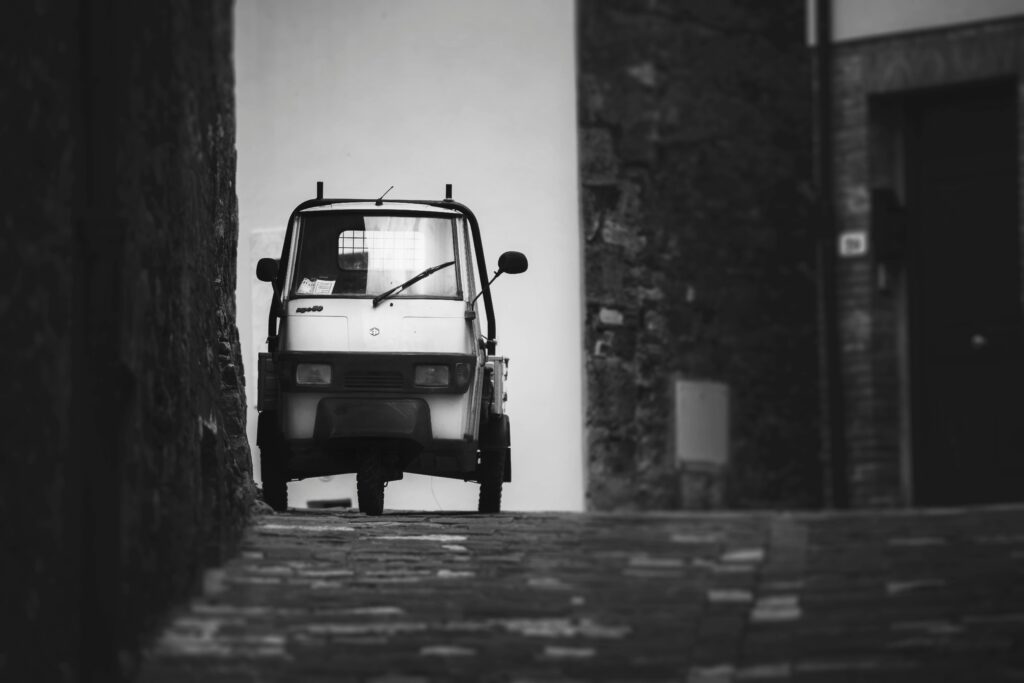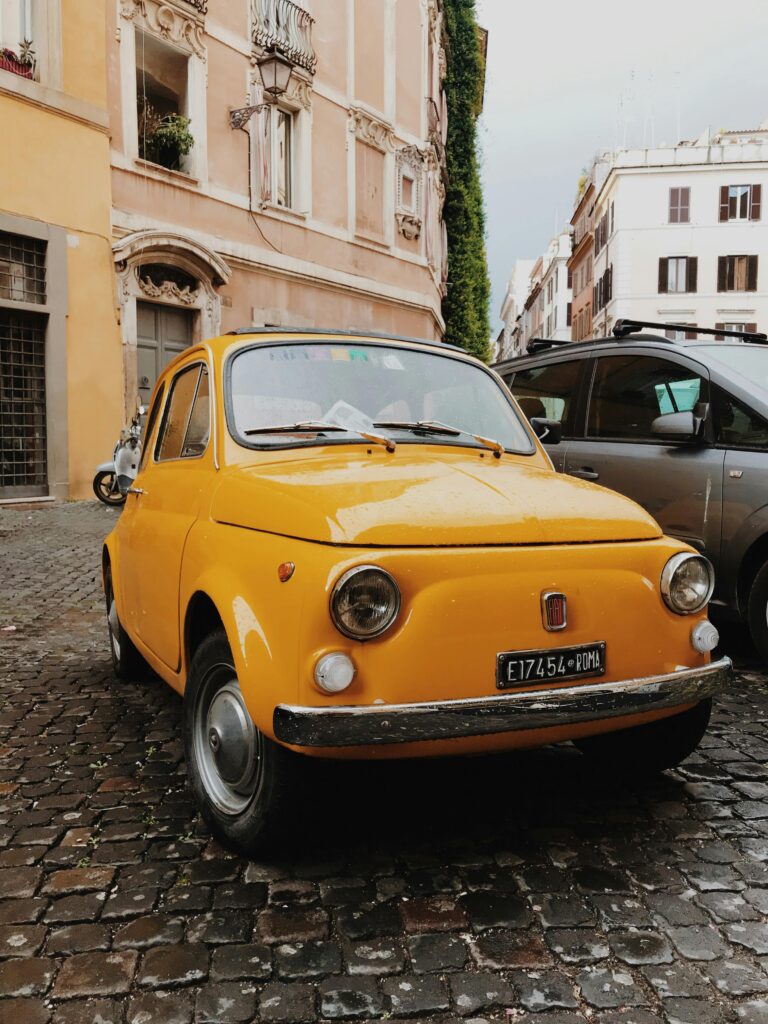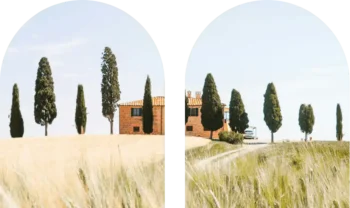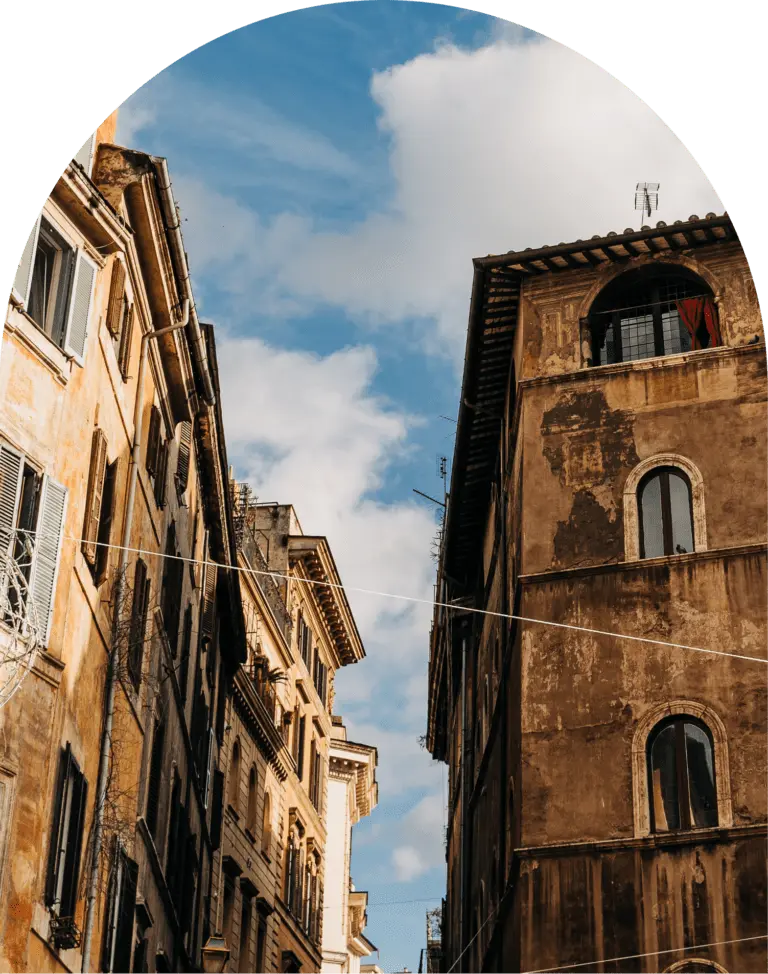Visitors who spend their vacations in Italy usually find the public transportation system to be convenient and efficient. On the other hand, those considering longer stays or even relocating to the suburbs or countryside will find that having a car is helpful and sometimes necessary. If you’ve found yourself asking, “Can I drive in Italy?”, it’s important to understand license requirements and regulations for driving in Italy.
Driving in Italy with a Foreign License
1. Short-Term Stay:
Visitors on short-term stays in Italy can drive using their foreign license. However, it’s advisable to check with local authorities to ensure compliance with specific regional regulations. In order to avoid any potential language barriers when renting or interacting with authorities, carrying an International Driving Permit (IDP) is recommended. IDPs can be issued by public authorities or private companies (such as AAA in the U.S.).
2. Long-Term Residents:
Those planning to relocate to Italy are allowed to use their home country’s driver’s license for up to one year, as long as an IDP has been issued. After one year, converting your foreign license to an Italian one is advisable for EU citizens and mandatory for non-EU citizens. The local Motorizzazione Civile office will facilitate this process.
Obtaining a Driver’s License in Italy
1. EU and EEA Citizens:
Expats who have a driver’s license from European Union (EU) and European Economic Area (EEA) member countries can use their existing national driving licenses in Italy. However, our advice is to request a conversion to an Italian driver’s license, which will make it quick and easy to process a license renewal at expiration.
2. Non-EU/EEA Citizens:
Non-EU/EEA citizens will need to obtain an Italian driver’s license. While a handful of foreign countries have signed reciprocity agreements with Italy, which allow for license conversion, most expats will be required to take a written and practical driving test. These tests can be challenging (not least because they can only be administered in Italian, French or German) and require adequate preparation. Most test takers attend private driving schools in order to obtain their Italian license for the first time. Note that within the first year of having an Italian license, you are limited to operating vehicles of a lower horsepower.

Road Rules and Tips
1. Traffic Regulations:
Italian roads follow right-hand driving rules, and speed limits are well-marked. It’s crucial to adhere to local traffic regulations, including ZTL (Zona a Traffico Limitato) zones in city centers where only authorized vehicles are allowed. Speed limits and ZTL rules are enforced through a dense network of traffic and speed cameras. Even if you do not see police along the way, we advise you to be on the lookout for these controls.
2. Parking Challenges:
The closer you get to the historic centers of Italian cities, the harder it is to find parking spaces. Be mindful that many city centers follow the urban layout of 500+ years ago, when automobiles did not exist. This means that roads are narrow, parking spaces are scarce and often reserved for local residents, and SUVs are not welcome. Expats should familiarize themselves with parking zones, pay attention to street signs, and consider using public transportation in city centers.
3. Tolls and Autostrade:
Italy has an extensive network of toll roads (Autostrade) that make traveling between major cities fast and convenient. Expats should be prepared to pay tolls when traveling long distances. Toll rates vary based on the distance traveled. Autostrade per l’Italia’s site allows you to calculate tolls before your trip.
4. ZTL Zones:
An increasing number of Italian cities have Limited Traffic Zones (ZTL) where only authorized vehicles are allowed. Traffic cameras often monitor these areas, and unauthorized vehicles may face significant fines. If you plan on visiting or residing in a ZTL area, you should contact your host (if staying in a hotel or B&B) or local authorities to obtain a temporary ZTL permit.
Driving in Italy as an expat or tourist can be a challenging but rewarding experience, offering the freedom to explore the country at your own pace. Understanding the license requirements, road rules, and local regulations is crucial for a smooth and enjoyable driving experience through the beautiful landscapes of Italy.








